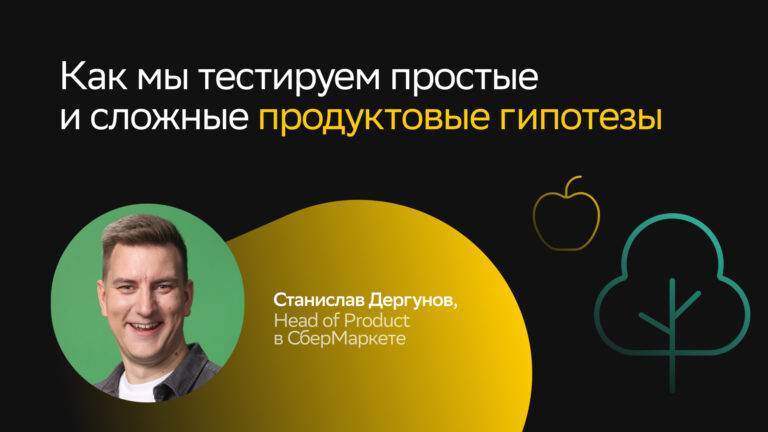Mercor's AI Interviewed 300,000 Job Seekers, Now Valued at $250 Million
Led by three 21-year-old Thiel Fellows, the AI startup Mercor has raised $32 million from Benchmark, Peter Thiel, and other investors. The startup’s revenue is already in the tens of millions, growing 50% monthly, and it’s profitable.

Disclaimer: This is a free translation articles Alex Conrad, which he wrote for Forbes. Translation prepared by the editorial staff of “Technocracy”. In order not to miss the announcement of new materials, subscribe to “Voice of Technocracy” — we regularly talk about news about AI, LLM and RAG, and also share useful mustreads and current events.
To discuss the pilot or ask a question about LLM, please Here.
In August 2023, a few weeks after finishing his sophomore year at Georgetown University and Harvard Business School, Brendan Foudy met with his friends Adarsh Hiremath and Surya Midha to convince them to drop out. That January, the former classmates had founded a startup called Mercor, which aimed to connect engineers in India with companies in need of freelance developers. Within a few months, they had reached $1 million in revenue and $80,000 in profits, without any outside financial backing.
When Foody's presentation was over, Midha turned to Hiremath, his partner with whom he had won the national debate championship two years ago, to ask one more question: “Hey, man, how hard can this be?”
For Mercor’s founders, the answer so far seems to be “not very difficult.” Their product, which uses artificial intelligence to screen and interview job seekers and then match them with open positions, has conducted more than 100,000 interviews and assessed 300,000 people in less than two years. Now just 21 years old, Foody, Hiremath, and Midha are Thiel Fellows who dropped out of college and now run a business that continues to generate revenue in the tens of millions and is growing at 50% per month.
And their 20-month-old startup is now valued at $250 million after raising a $32 million Series A round led by Benchmark and new partner Victor Lazarte, who joined Mercor’s board. The company has already invested in billionaire investor Peter Thiel, Twitter co-founder Jack Dorsey and two OpenAI board members, Quora CEO Adam D’Angelo, and former Treasury Secretary Larry Summers.
“We were interested in the topic of labor and how talented people around the world are under-resourced,” explained Foody, CEO of Mercor. “By leveraging large language models and automating processes around talent assessment, we can solve this inefficiency.”
Mercor originally provided job posting and recruitment services for part-time professionals. But now, under the hood, the product has its own large language model, which is built on the latest ready-made solutions from companies like OpenAI and tuned using Mercor's unique data related to the job search process.
Candidates upload their resume and then go through a 20-minute video interview with Mercor’s AI. About half of the time is spent discussing the candidate’s experience, and the rest is spent solving a relevant case. The applicant’s application is then automatically matched with all available vacancies on the Mercor platform. More specialized positions may require a second, more detailed interview with the AI.
Mercor promises employers to quickly find qualified candidates who can flexibly expand and contract their workforce through hourly contracts, part-time and full-time employment. Mercor considers India to be the largest pool of such talent, and ranks the United States second.
The roles can also vary, including engineering and product development, as well as design, maintenance, and content creation. Several leading AI labs, which Foody can’t name, have used Mercor to find professional writers and videographers to create additional data. Other employers have included consulting, engineering, finance, and legal firms, the CEO says. Even Mercor itself relied solely on these professionals until February of this year, though it now employs 15 people.
Mercor’s ability to predict job seekers’ performance, trained on assessments developed by hiring experts, has already outperformed human recruiters in the startup’s tests. The startup will share its methodology in a research paper it will publish in November, Foody said. Ultimately, Mercor hopes to predict and automate longer-term performance assessments, helping employers track and nurture talent over the long haul.
Mercor isn’t Foudy and Hiremath’s first business. A few years before he dropped out of Georgetown, Foudy started a small business building websites for startups while attending Bellarmine College Preparatory in San Jose. Hiremath, whom Foudy knew from his high school debate team, helped build the sites; Midha, a friend of Hiremath’s from previous years, also befriended Foudy and became his roommate at Georgetown.
At debate competitions, Mercor’s founders would spend months studying both sides’ arguments before presenting their counterarguments. These discussions about the labor market, which Midhi and Hiremath, the sons of Indian immigrants, believe is particularly unfair in developing countries, inspired them to create Mercor. They used the services of an engineering contractor, hired remotely from India.
“It was completely wrong that when it came to hiring and recruiting, half of the candidates were being screened out based on their CV, lack of prestigious work experience or certain types of education,” says Midha. “Creating a fairer and more objective approach to hiring is the most important tool that can improve people’s overall quality of life.”
After a month in New York, Mercor’s founders moved to San Francisco last fall to focus on the startup full-time. Foody, the company’s CEO, was responsible for product and sales; Midha, the COO, handled operations and corporate contracts; and Hiremath, the CTO, focused on engineering and machine learning.
In January, they announced they had raised $3.6 million in a seed round led by General Catalyst. And in March, the three were awarded the Peter Thiel Fellowship, which not only gave them $100,000 in cash but also the opportunity to meet other tech founders and executives who could become their friends and potential customers.
Mercor's profits continued to grow, so the company showed little interest in seeking funding when Benchmark's Victor Lazarte met with Foody in late 2024.
Lazarte's experience building gaming startup Wildlife Studios from scratch convinced Foody to agree to an initial meeting. And an offer of a helicopter ride piloted by Midas-listed investor Peter Fenton secured Benchmark another meeting.
Mercor then met with former Midas List regular Bill Gurley, a semi-retired Uber investor, while Benchmark was successfully fending off other firms’ attempts to beat them to a funding round. (The founders had previously rejected VCs’ valuations at least once, based on their experience in debates.)
“In the venture business, we have a lot of meetings, but sometimes there are meetings that leave a lasting impression,” Lazarte says. “I realized that this guy (Foody) is truly unique. And his vision for the company, which is to help people find their perfect job, really excites me.”
That message will be harder to get across if companies use Mercor to streamline their workforce and shift to more outsourcing. There are also concerns that Mercor will encourage the growth of AI research labs, which could lead to job losses for other professionals.
But Benchmark is confident that Mercor will help people find better jobs, rather than speed up the process of replacing humans with AI. According to Lazarte, the system will solve a more complex problem: finding specialists for permanent positions with a fixed salary in the long term.
Mercor faces serious competition in the labor market, especially from well-funded startup Andela, which recently hired an Uber executive as its new CEO. Traditional outsourcing companies may also start using off-the-shelf AI tools to compete.
Another challenge is keeping both parties interested in Mercor’s platform. Foody acknowledged that the startup has been specifically recruiting candidates for specific positions through LinkedIn. But he insists that most new users come on their own, using the site’s resources like resume feedback and interview coaching.
Success for Mercor, says Foody, means “building a single global labor market” that can identify the ideal job for each person and deliver it to them. Midha puts it more simply: “Giving jobs to a billion people is what would really make me happy.”




![[Личный опыт] Vzhuh – and you are in biotech. How to get hired in an industry that inspires](https://prog.world/wp-content/uploads/2021/03/tvpl4knckbcu3lbrhcjnibe5jas-768x768.jpeg)